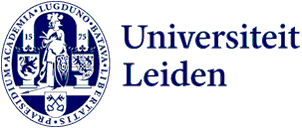Lecture Antoaneta Dimitrova in Prague: Freedom is Precious
Antoaneta Dimitrova, Professor Comparative Governance, presented the Cleveringa Lecture at the Vaclav Havel Library in Prague last week. We spoke to her about her experience.

How was contact between you and organisation committee in Prague established?
Dimitrova: ‘The Cleveringa Lecture in Prague came about as a result of the active approach of the Dutch Ambassador in Prague, Daan Huisinga. It was his wish as a Leiden alumnus to start a new series of Cleveringa lectures. He got in touch with the team of the Vaclav Havel Library in Prague, who immediately picked up on the similarities between Professor Cleveringa’s status and Vaclav Havel’s courage and his work opposing the communist regime. By way of the ambassador, the Leiden University Fund (LUF) and my colleague Honoratia Mazepus, who was approached by the LUF, I was asked to present the lecture. I only heard about it a week before the lecture.’

What was the lecture’s message?
Dimitrova: ‘My enthusiasm to participate, despite the short notice, had to do with Cleveringa and Havel and the amazing connections between the two. My message was that freedom is precious: Cleveringa and Havel paid a price for speaking out against those in power. The new Leiden Cleveringa professors, Grabowski and Engelking, have also paid a price for their academic work and have been forced to appear in court in Poland, for their scientific endeavours and findings on the Holocaust in Poland. The question I posed is: what anyone of us would today be willing to do to uphold our freedom? For example in the conflict regarding the rule of law between the European Union and the Polish government, in which ideology is increasingly becoming a factor.’

Why was it important for you to be able to share this?
Dimitrova: ‘It was important to share my story about the rule of law in Central and Eastern Europe with the audience in Prague. The people there understand the enormous contradictions depicted in this story and the irony of oppression of free speech in exactly those countries that fought against a totalitarian regime in 1989. The limited freedom during the Cold War was brought to life by the next speaker: a friend of Havel, Mister Hvížďala, who told us how, in 1978, he accepted the Erasmus Price in the Netherlands on behalf of Havel.’
You posted on Twitter: A night to remember. Could you tell us more about your experiences during the evening?
Dimitrova: ‘The lively discussions and the enthusiasm of everyone present despite the very worrying Covid situation in Czechia is something I’ll always remember. Even though restrictions were in place, people were able to attend: young people, Leiden alumni and also alumni of other Dutch universities. Hopefully, it’ll be the start of many Cleveringa and Havel lectures and meetings to come in the upcoming years.’
